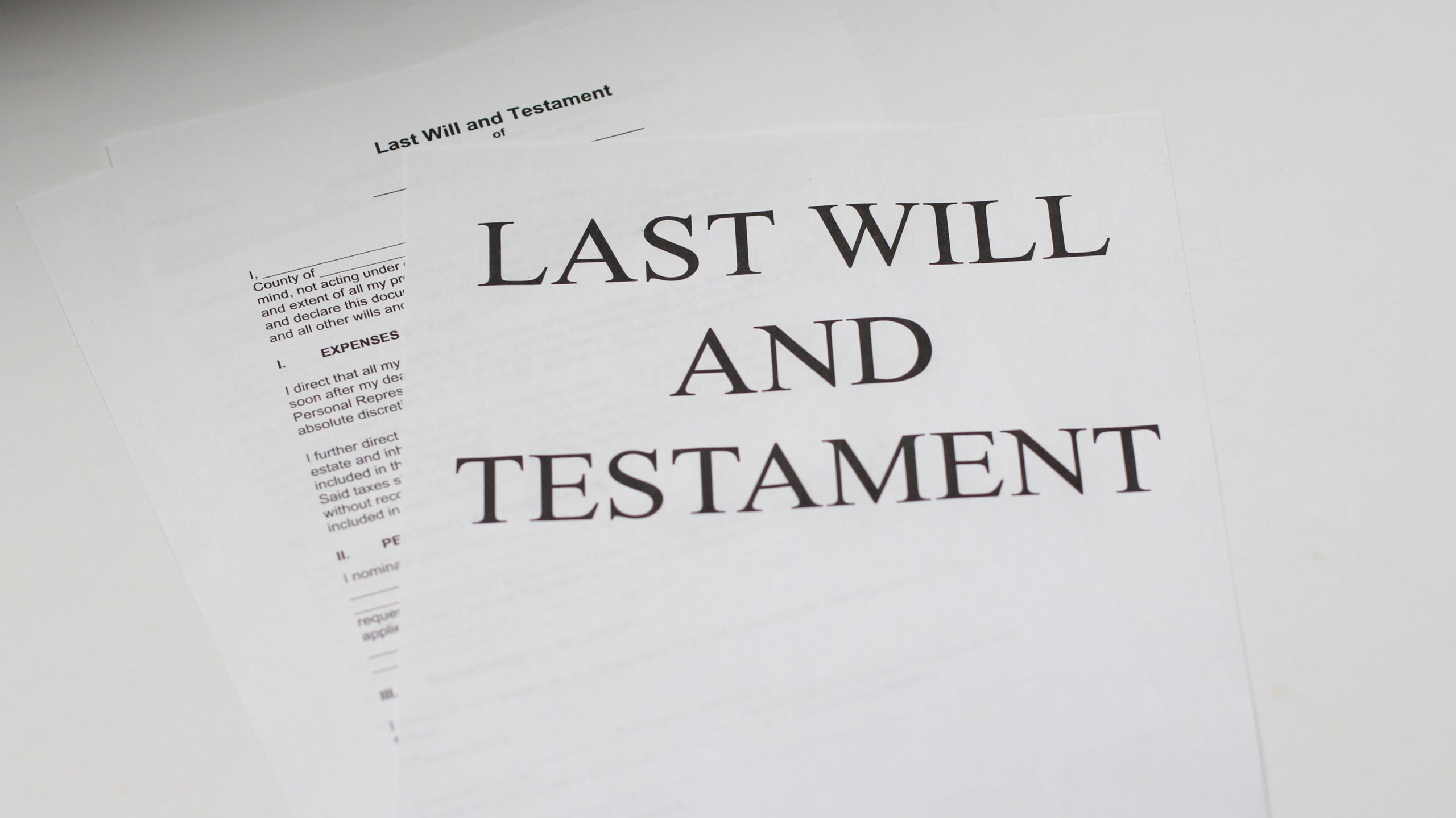Beneficiary = Person (or organization) who receives benefits as described in a Will.
Bequests = Gifts of money or items of property made in a Will.
Cash = All bank and financial accounts which reflect cash investments only. Includes checking and savings accounts, bank CD’s (Certificates of Deposit), money market accounts, etc.
Estate =The property, assets, possessions, and wealth of a person who is making a Will, less any liabilities outstanding at the time of his/her death.
Executor or Personal Representative (depending on state) = The person who manages the distribution of an estate, as described in a Will. This person files tax returns, makes any discretionary decisions, and handles the paperwork for your estate.
Intangible Personal Property = Property that has value because of what it represents or the rights which it gives the owner. Includes stocks, bonds, copyrights, etc.
Intestate = When someone dies without leaving a Will. The decedent’s assets are then distributed through the state intestate laws. Typically, spouse first, children, parents, siblings, and so forth.
Issue (a.k.a. “Descendants”) = A person’s children, grandchildren, great-grandchildren, etc. (i.e., all of the person’s direct descendants). Legally adopted children and grandchildren are included, unless the Will expressly excludes them.
Lapse = The failure of a bequest. Occurs when a beneficiary is not alive when the bequest takes effect (assuming there is no successor beneficiary named). For instance, you leave a watch to a child, but that child dies before you, and you did not name a successor to receive the watch. This gift has “lapsed.”
Per Stirpes = Describes the way a bequest is to be divided among a person’s issue. Specifically, if you leave property to a person, but that person dies before you, his or her share will be divided among his or her children. If one of his children also dies before you, that child’s share gets distributed to his or her children, and so-on… For example, let’s say you have three children (Sue, Sally and John) and your Will provides for an equal share to each of your children “per stirpes.” If all three children survive you, each would get one-third of the bequest. If, however, John dies before you, his one-third share would be divided equally among his children. (If he had no living issue, his share would be divided between Sue and Sally.)
Probate = When someone passes away and leaves behind a Will or dies intestate (leaves no Will), assets need to be administered through a court process called “probate.” Probate is the court-supervised process of gathering a deceased person’s assets and distributing them to creditors and to the intended beneficiaries. This involves the court appointing an administrator or personal representative who will administer the estate – this can involve locating and notifying beneficiaries, paying creditors and taxes, appraising property, and more.
Real Property = Real estate, any land or buildings owned, and the permanent fixtures attached. Includes house, land, piers, landscaping, swimming pool, etc.
Residuary (Estate) = A catch-all section of your estate, including any property which you own but is not named in your Will, and any property which cannot be passed per your wishes (usually because a named beneficiary has died before you, without a successor named). May include any type of property — stocks, real estate, vehicles, cash, etc.
Successor Beneficiary = If a beneficiary does not meet the survivorship requirement, any bequests to this person shall be transferred to a substitute (“successor”) beneficiary. If no successor is named, or if the successor does not meet this requirement, the bequest shall be ignored completely, just as if the bequest had never been written.
Survivorship = In order to be eligible to receive property through this will, the beneficiary must outlive you by a measurable period of time. You may choose how long this period is. This is known as “survivorship.”
Tangible Personal Property = Most everyday physical objects which have value. Includes cars, furniture, artwork, jewelry, etc.
Testator = The person who is making the Will.
Trust= An agreement where ownership of property or money transfers to a “trustee,” who must then manage the property or money for another person (a “beneficiary”). Often, a trust will be set up for a minor, a dependent, or a young adult, who may receive money or property from the trust only under specific circumstances (for example, upon a person’s death, upon reaching a certain age, or anytime in the absolute discretion of the trustee). The trust agreement will have instructions on how the trustee must manage the trust assets, and how and when to distribute money or other property to the beneficiary.
Please schedule your free 15-minute consultation to determine whether a Trust or a Will is right for you! You can contact us using the “Contact Us” form online, or simply call (202) 743-1656.







